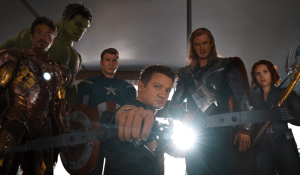There’s a saying anime fans should know by now. Jane Austen said it best long ago, but it is a truth universally acknowledged, that a popular anime in possession of many episodes, must be in want of a live-action film. Alright, so that’s not the exact quote, but the sentiment stands.
Videos by ComicBook.com
Over the last twenty years, more than a dozen high-profile anime series have been brought into the real-world thanks to film studios. Fullmetal Alchemist is the most recent example, but Gintama, Tokyo Ghoul, and even Dragon Ball have their live-action pasts. And, as fans know, many of those adaptations flopped and failed to impress otakus or the general public.
It is just a matter of time before someone gets the live-action formula right, but to do that, the industry has to pinpoint what has gone wrong with its previous adaptations. Luckily for those studios, Justin Sevakis has shared a well-thought answer to that question.
Recently, the writer shared his breakdown of live-action anime woes with Anime News Network. Sevakis begins by explaining most adaptations too strictly or too loosely follow the franchise’s they are based upon. By nature, anime is not meant to be realistic and feeds off surrealistic stories. A one-off film just doesn’t have the time to do the world building needed for series like Naruto.
Of course, the same criticism could be said of comic books. After all, there is nothing grounded about the Hulk or the Marvel Universe. Sevakis explains the rise of Marvel films had it easier than anime because of their pre-existing mythos.
“American comic books work well for movies, because while every outing is technically part of a larger narrative and cinematic universe, most characters and back stories are relatively simple and easy to explain. Most of them are set in an America not much different from our own. Not much time has to be spent on world-building, establishing a huge cast, or complicated rules,” he writes.
“But most importantly, very few of them are actually trying to faithfully recreate a long, complicated story arc from the comics – Marvel movies are very, very loosely adapted from the long-running stories they’re based on.”
Ultimately, the point dividing anime adaptations from Marvel blockbusters comes down to scope. Yes, the Marvel Cinematic Universe is huge, but it is successful because it started small. It has taken a decade for the MCU to reach its magnum opus, and it started off humbly with a film about Iron Man, a lesser-known hero who has since become an icon.
If live-action anime wants to succeed, it needs to tailor its sizable expectations. The medium has to do twice the exposition to do half the world building. But, if the adaptations can be done right, there is a massive anime fandom waiting to buy movie tickets. The community is a global one with millions of members, but they will not celebrate two-bit adaptations. Live-action anime can be just as successful as superhero films if studios would give its source material the attention it deserves. To liken Dragon Ball to The Avengers would be a mistake, and audiences know Goku deserves more than a copy-and-pasted origin story.
Of course, this is all easier said than done. It will take some trial-and-error to figure get the formula correct, but comic book movies had growing pains too. Live-action anime has had its misses, so it is time Hollywood started batting some hits. So, here’s to hoping studios like Warner Bros. and Lionsgate get their act together before anime fans start rioting.
Do you think the future of live-action anime looks brighter than it is now? Hit me up on Twitter @MeganPetersCB to let me know and talk all things comics, k-pop, and anime!





